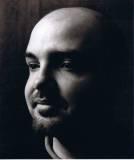National inequality, social capital, and public goods decision-making
IMC Tuesday Seminar: Talk by Joshua Skewes, Department for Linguistics, Cognitive Science, and Semiotics, Aarhus University
Info about event
Time
Location
IMC meeting room, Jens Chr. Skous Vej 4, building 1483, room 312

Abstract
Nations with higher inequality spend less money on social welfare, have less civic activity, and have more conflict. One reason for this may be that inequality affects how people make social decisions. Laboratory research has shown that when income inequality is simulated using cooperative economic games, people who are given more resources contribute less to their group than they should, and people who are given fewer resources contribute more. Groups with higher inequality thus generate less wealth overall, with poorer group members receiving the worst outcomes. This study links these experimental findings to real world inequality and applies a decision model to explain these experimental effects in terms of social decision-making dynamics. Using a dataset from 255 groups playing a public goods game in thirteen economically diverse societies, I show that in nations with higher inequality, groups earn less together. I show that this occurs because people living in less equal nations are less optimistic about one another’s contributions at the outset of the game, and they monitor one another’s contributions more closely, which accelerates the decay of cooperation. I explain these results in terms of national differences in trust and adherence to civic norms between societies. I generalize these findings to real-world public goods behaviors by showing similar patterns of results for national level volunteering rates, rates of involvement in petitions, and national recycling rates.
About the speaker
Joshua Skewes is a cognitive scientist who is mostly interested in cognitive modeling and applications of cognitive science. He is Head of Department for Linguistics, Cognitive Science, and Semiotics, consultant cognitive scientist for Mindway AI, and an IMC original.
